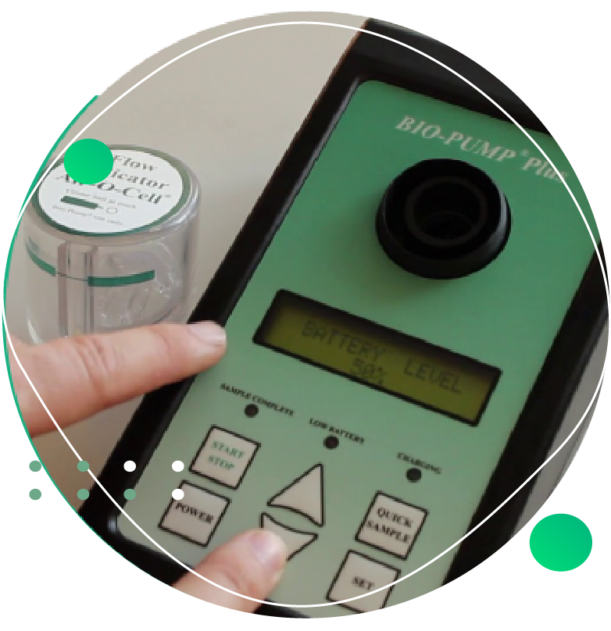Renters
Insurance Claims
We are Environmental Testing Agency, your partner in comprehensive mold inspections, testing, remediation, and air quality services. By understanding the significance of mold insurance claims, you proactively empower yourself to safeguard your property, health, and financial well-being.
As a renter, it’s essential to understand your rights and options when dealing with mold-related issues in your rental property. This guide aims to provide valuable insights and guidance to help renters navigate the complexities of mold insurance claims effectively.
Mold Insurance Claims: Unders-tanding the Basics
Mold insurance claims can be complex, but renters should have a basic understanding. Mold damage is often excluded from standard renters’ insurance policies, leaving tenants vulnerable to significant financial burdens. However, if the mold growth results from a covered peril, such as water damage from a burst pipe, your insurance may provide coverage.
The Importance of Mold Insurance Coverage For Renters:
Mold insurance coverage is vital for renters as it protects their personal belongings, health, and financial well-being. In the event of mold-related issues in their rental property, such coverage can help reimburse renters for the cost of repairing or replacing damaged belongings, cover medical expenses related to mold exposure, alleviate the financial burden of remediation expenses, and offer liability protection in case of legal claims. With mold insurance coverage, renters can enjoy peace of mind, knowing that they are financially protected against the potential risks and liabilities associated with mold damage.
Preventive Measures
While renters may not have control over the maintenance of the property, there are preventive measures they can take to minimize the risk of mold growth:
- Promptly report any plumbing leaks or water intrusion to your landlord.
- Keep the rental property clean and well-ventilated.
- Use exhaust fans in bathrooms and kitchens to reduce moisture buildup.
- Regularly inspect for signs of mold growth, such as musty odors or visible mold.
The Process
The process for a renter to make a mold insurance claim typically involves several steps. By following these steps, renters can effectively navigate the process of making a mold insurance claim and ensure that they receive fair treatment and compensation for mold-related damage to their rental property.
Does My Florida Insurance Policy
Cover Mold Damage?
Mold, Renters, And Law
Renters in Florida are protected by certain laws and regulations regarding mold-related issues in rental properties. While Florida’s mold laws primarily focus on landlord’s and property managers’ requirements to maintain safe and habitable living conditions, renters may also have rights related to mold insurance claims. Renters must familiarize themselves with these laws and understand how they impact their rights and responsibilities.
Key Considerations for Renters’ Mold Insurance Claims
- Understanding Coverage: Renters’ insurance policies may provide coverage for mold-related damage, but the extent of coverage can vary. Review your policy carefully to understand what is covered and any limitations or exclusions that may apply.
- Reporting Mold Damage: Promptly report any mold damage or suspected mold growth to your landlord or property manager. Document the issue with photographs and written descriptions to support your insurance claim.
- Cooperation with Landlord: Work with your landlord or property manager to address the mold problem promptly. They are responsible for remedying mold issues in the rental property, including coordinating with insurance adjusters and contractors if necessary.
- Insurance Claim Process: If your landlord does not promptly address mold damage or if you encounter difficulties with your renters’ insurance claim, you may need to escalate the issue with your insurance company. Keep records of all communications and documentation related to the mold damage and insurance claim process.
- Legal Recourse: If your renters’ insurance claim is denied or disputed, you have the right to seek legal recourse. Consult with an attorney who specializes in renters’ rights and insurance law to understand your options for pursuing a fair resolution.
Document the Mold Damage: The renter should document the mold damage thoroughly with photographs and written descriptions. This documentation will serve as evidence to support the insurance claim.
Contact the Insurance Company: The renter should contact their renters’ insurance company to initiate a mold insurance claim. They will need to provide details about the mold damage, including when it was discovered, the extent of the damage, and any steps taken to address the issue.

Cooperate with the Claims Process: The insurance company will assign an adjuster to investigate the mold damage and determine coverage. The renter should cooperate with the adjuster’s investigation and provide any additional information or documentation they request.
Provide Documentation: The renter should provide the insurance company with documentation of the mold damage, including photographs, written descriptions, and any related expenses, such as mold inspection fees or temporary accommodations.
Review the Insurance Policy: The renter should review their renters’ insurance policy to understand the extent of their coverage for mold damage and any limitations or exclusions that may apply.
Claim Follow-Up: The renter should follow up with the insurance company regularly to check on the status of the claim and ensure that it is being processed on time.
NOTE: Seek Legal Assistance if Necessary. If the insurance claim is denied or disputed, the renter may need to seek legal assistance from an attorney who specializes in renters’ rights and insurance law to understand their options for pursuing a fair resolution.

Health and Safety Concerns
- Mold exposure can pose health risks, particularly for individuals with allergies, asthma, or other respiratory conditions.
- Mold insurance coverage can help cover the costs of medical treatment or relocation expenses if renters need to vacate their rental property due to mold-related health concerns.
Professional Assistance: Consider hiring a certified mold inspector and remediation specialist to assess the extent of the mold damage and develop a remediation plan. Working with experienced professionals can streamline the insurance claims process and ensure that mold issues are addressed effectively.
Renters Mold Insurance Claims
Renters’ insurance policies may provide coverage for mold damage, but the extent of coverage can vary. Some policies may cover mold damage if it’s caused by a covered peril, such as a sudden water leak. However, policies may have limitations or exclusions for mold damage due to long-term neglect or lack of maintenance.
If you discover mold in your rental property, you should notify your landlord or property manager immediately. Document the mold damage with photographs and written descriptions, and contact your renters’ insurance company to initiate a mold insurance claim.
Renters’ insurance policies may cover the cost of mold remediation if it’s necessary to repair or replace damaged property covered under the policy. However, coverage for mold remediation may be subject to certain limitations or exclusions, so it’s important to review your policy carefully.
If your landlord is not addressing the mold problem in your rental property, you may need to take action to protect your health and safety. This may include contacting local health authorities or building code enforcement agencies to report the issue. Additionally, you may need to seek legal assistance to enforce your rights as a renter.
If your mold insurance claim is denied, you have the right to appeal the decision or seek legal recourse. Review your insurance policy carefully to understand the reasons for the denial, and gather any additional documentation or evidence that may support your claim. Consider consulting with an attorney who specializes in renters’ rights and insurance law for guidance on how to proceed.
More About Renters Insurance Claims
Navigating mold insurance claims as a renter in Florida can be challenging, but with the right knowledge and resources, you can effectively protect your home and rights. ETA MOLD is committed to providing renters with the information and support they need to address mold-related issues and safeguard their living environment.
For more information or assistance with mold inspection and remediation,
please contact us. Our experienced team is here to help you every step of the way.
Contact Us
Navigating mold insurance claims as a renter in Florida can be challenging, but with the right knowledge and resources, you can effectively protect your home and rights. ETA MOLD is committed to providing renters with the information and support they need to address mold-related issues and safeguard their living environment.
For more information or assistance with mold inspection and remediation,
please contact us. Our experienced team is here to help you every step of the way.
Contact Us

Request
A Free Estimate


